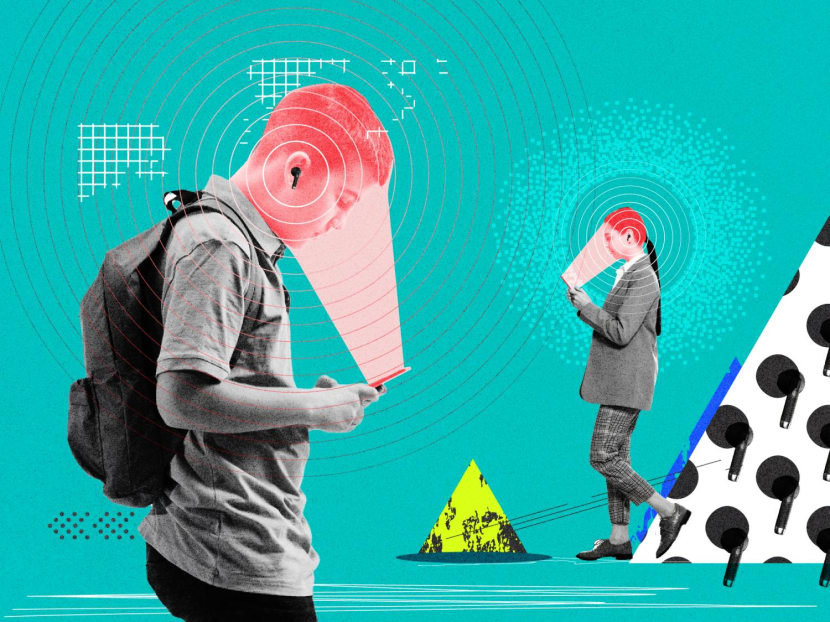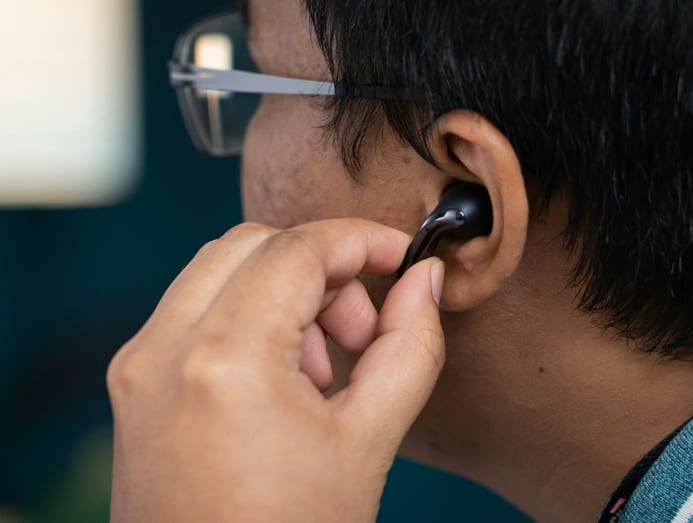Commentary: I don't wear earbuds in public. Here's why you may want to unplug yours too

By constantly immersing ourselves in our own curated audio or visual experiences on our screens, we miss out on the spontaneous and unexpected interactions that enrich our daily lives.
These days, it is quite common to see people wearing earbuds in public. On trains, it's not unusual to see more than half the passengers using them.
Personally, I can't seem to wear them comfortably. After a short while, my ears start ringing, wax builds up, and I feel an itch in my ear.
During the pandemic, I had frequent online meetings. With the usual background noise, I resorted to wearing earpieces, headphones, and eventually earbuds.
While initially convenient, I soon grew to dislike them. Now, for virtual meetings, I just use the speaker and talk in a room by myself — a vast improvement over having foreign objects stuffed in my ears.
When I see people with earbuds, I often wonder what they are doing.
Some are listening to music so loud that I can hear it. Others are watching videos, playing games, or chatting. Most are engrossed in their online activities, even as early as 7am.
HAZARDS OF NOT HEARING
I wonder if this will impact our well-being.
Strained eyes, overtaxed ears, and strained necks from looking down at screens — how will this affect us in old age?
From a broader perspective, this constant state of distraction can have cumulative effects on our mental health.
Studies have shown that our brains need downtime and periods of unfocused thought to process information and foster creativity.
When we constantly bombard our minds with external stimuli, we deprive ourselves of this necessary mental rest, potentially leading to increased stress and decreased overall well-being.

What about situational awareness? As people immerse themselves in their online worlds, many do not fully pay attention to their surroundings.
This is a phenomenon called inattentional blindness: We’re more likely to fail to notice things in our visual field because we are busy focusing on something else.
Being aware of what’s happening around us can help us notice and react to potential dangers more quickly. Whether it is being alert to approaching vehicles while crossing the street or noticing someone who might need immediate help, staying attuned to our environment can be safer not just for ourselves, but for those around us.
SHUTTING EACH OTHER OUT
Potential dangers aside, such blindness can be a pity for us as social beings.
Not being a fan of earphones, I have always spent my time on public transport observing people instead, learning a lot about them in just a few minutes.
Taking a leaf from Sherlock Holmes, I become a pretend detective, making casual observations about people and their surroundings.
I once noticed a well-dressed man rushing through the peak hour crowd in the MRT station, flipping through notes and glancing at his watch repeatedly while juggling a briefcase. Was he late for an important meeting? Was it an interview?
Coincidentally, I saw this man again about half an hour after he left the station. He was speaking to another person at a coffee place, and I overheard him speaking animatedly about the area and the schools around. I realised that he was an agent trying to sell a property to a prospective client.
Another time, I saw a student on the train, her eyes darting between her watch and the station signs, her fingers tapping nervously on her phone. What could be so nerve-wracking?
It inspired me to reflect on the pressures and anxieties that often accompany our daily commutes and the unspoken stories behind each person's journey.
These moments of observation not only spark curiosity but also foster empathy and a deeper connection to the world around us.
If we become oblivious to our surroundings, we miss out on interesting and thought-provoking things. By looking around, we hone our awareness and become more thoughtful and mindful.
When we shut everything out with earphones, we also shut out opportunities to observe and learn from and about others, to interact and engage, or to assist those in need.
For instance, I once noticed an elderly person struggling with their groceries. Because I was not plugged into earphones, I could offer help and make their day a little easier.

PLUGGING INTO THE REAL WORLD
Such moments of human connection are invaluable and easily missed when we are lost in our digital worlds.
By constantly immersing ourselves in our own curated audio or visual experiences on our screens, we miss out on the spontaneous and unexpected interactions that enrich our daily lives. A friendly conversation with a fellow commuter, a smile exchanged with a stranger, or the opportunity to help someone in need — these are the small but significant moments that build a sense of community and shared humanity.
For example, a friend of mine shared a story about a time when he decided to forgo his usual habit of wearing earphones during his commute.
He ended up striking a conversation with a fellow passenger who was reading the same book as him. This led to a deep and enriching discussion, and they eventually became friends.
Such serendipitous encounters are less likely to happen when we are shut off from the world around us.
While earphones and digital devices offer convenience and entertainment, it is crucial to strike a balance. By occasionally unplugging and engaging with the world around us, we open ourselves up to richer experiences and deeper connections.
Consider putting away these devices that disconnect us from the real world, so we can reconnect with ourselves and our surroundings.
Let’s look up, and truly observe the fullness of our world and the people with whom we share it, with all our senses.
Who knows what interesting discoveries and meaningful interactions await?
ABOUT THE AUTHOR:
Loh Xian Jun is an executive director at a research institute.







